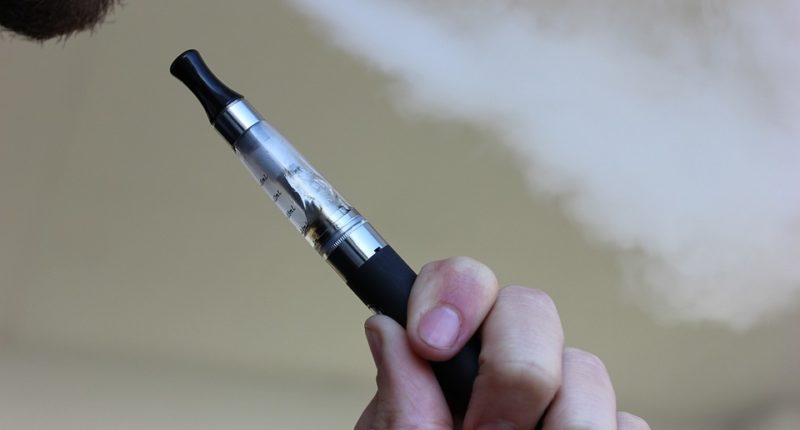India has joined the rising group of governments who have now completely put a ban in import and production of e-cigarettes. The government has decided to ban e-cigarettes which are supposedly the cause of several lung diseases and illnesses.
Country’s FM Nirmala Sitharamnan had a lot to say about this. Announcing the decision, the finance minister stated that “the Cabinet decided to ban e-cigarettes and similar products as they pose health risk to people, especially the youth.”
She said “reports say that there are some people who are probably getting into the habit as e-cigarettes seems cool.” The finance minister added that “there are more than 400 brands, none of which is manufactured yet in India and they come in over 150 flavours.”
For those who are unacquainted with the term, “e-cigarettes” are basically devices which do not burn or use tobacco leaves. These are the most common forms of Electronic Nicotine Delivery Systems (ENDS).The effectiveness of e-cigarettes depends on a range of factors like the battery’s strength, the nature of unit circuit, e-liquid used, users’ behaviour, among others.
“The main constituents of the solution, in addition to nicotine when nicotine is present, are propylene glycol, with or without glycerol and flavouring agents,” the World Health Organisation says, adding that these solutions and emissions also contain some solutions which are considered to be “toxicants”.
According to recent studies, more than 9,00,000 people die each year in the country due to illnesses caused by tobacco. India sports around 106 million adult smokers, needless to say this country has an already developed potential market for companies such as Juul and Philip Morris.
Not just a tobacco cessation, but as Sitharaman had mentioned , e-cigarette has become a “style-statement”. And this is typically over-shadowing the ill-effects of vaping and taking in those dangerous chemicals into the lungs thus reducing a person’s longevity. Such decision has obviously pulled a number of criticisms across the nation.
The Food and Drug Administration (FDA) in US, (which regulates e-cigarettes) claims that there’s a possibility that the prior step could be extended to outright prohibition of vaping, seen as more legitimate products that help smokers quit their habit.
Justifying the ban, Nirmala Sitharaman said, “E-cigarettes were promoted as a way to get people out of their smoking habits but reports have shown that many people are not using it as weaning mechanism but are rather addicted to it.”
“These novel products come with attractive appearances and multiple flavours and their use has increased exponentially and has acquired epidemic proportions in developed countries, especially among youth and children,” the government said in a statement.
It said the ban on e-cigarettes will help “protect population, especially the youth and children, from the risk of addiction through e-cigarettes”.Today’s decision is a follow up of 2018 advisory that the central government had sent to all state governments asking them to consider banning e-cigarettes.
Prior to this, 15 states and one Union territory had already banned e-cigarettes. These include: Punjab, Karnataka, Mizoram, Kerala, Jammu & Kashmir, Uttar Pradesh, Bihar, Maharashtra, Tamil Nadu, Jharkhand, Himachal Pradesh, Puducherry, Rajasthan, Meghalaya, Odisha and Nagaland.
Here’s a surprising fact. New York’s health department had found very high levels of vitamin E oil in “cannabis cartridges” used by dozens of people in the state who had fallen ill after using e-cigarettes. But as it turns out, Vitamin E is a commonly used nutritional supplement but is dangerous when inhaled.
The market leader Juul Labs have been marketing their products as a safer alternative to cigarettes. However The FDA has warned Juul to stop advertising itself as a less harmful alternative to smoking; concentrating on the fact that the company is attempting to lure the youth into e-cigarettes by advertising them as less harmful.




